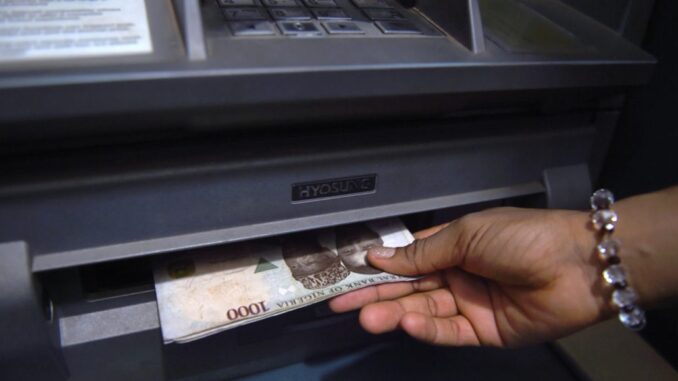
NIGERIA is grappling with another severe cash scarcity, disrupting daily life and economic activities nationwide. The acute cash shortage across all states is compounding the hardship facing Nigerians who have endured an unprecedented price spike over the past 18 months.
Despite the CBN’s assurance regarding sufficient cash supply, the scarcity has persisted, with millions of Nigerians denied access to their own money. This situation underscores systemic inefficiencies in the financial sector and raises broader questions about monetary policy, digital banking adoption, financial inclusion, and economic equity.
The CBN claims that over N3.3 trillion is in circulation as of December, compared to just N1 trillion in early 2023, implying that the cash supply should theoretically meet public demand. A Sunday PUNCH report said currency outside banks grew to N4.29 trillion in October, or 94.3 per cent of the total currency in circulation of N4.55 trillion.
However, much of this cash is reportedly hoarded by individuals due to the distrust of the system created by the ill-conceived and poorly implemented currency redesign policy in 2022. Banks blamed the CBN for the shortage and resorted to rationing cash, sometimes limiting over-the-counter and ATM withdrawals to just N5,000.
Conversely, the CBN has threatened to penalise banks that fail to make cash available over the counter or at ATMs.
Point-of-sale operators, who serve as an alternative, have started sourcing cash from petrol stations and retailers and significantly increased their charges, further exacerbating financial burdens. This is unacceptable.
Cash still accounts for 54 per cent of transactions despite the campaign to transition to a cashless economy. Petty traders, micro-businesses and transporters still largely deal with money.
While the emergence of fintech companies has driven the uptake of digital payments since the COVID-19 pandemic by 37 per cent, problems with network failures and fake alerts make traders wary of accepting such payments.
Even, before this present crisis, many rural communities are underserved by banks. The Association of Mobile Money and Bank Agents in Nigeria estimates that 300 out of the 774 local governments do not have bank branches.
The crisis is especially acute in northern states, where agriculture-based economies are struggling to access cash to purchase grains during the harvest season.
Long queues at ATMs and limited banking hours have become a common sight, further frustrating citizens who are unable to access their funds. The authorities need to step in and resolve this crisis, especially as the Yuletide season peaks.
There is little incentive for banks to deal in cash due to associated costs and security. Electronic payments provide new and increasing revenue streams. Electronic payment transactions in Nigeria surged to N234 trillion in the first quarter of 2024 from the N123.8 trillion recorded in the corresponding period of 2023.
While electronic payments have become the trend globally, Nigerians face challenges in adopting these alternatives. Poor network infrastructure, frequent payment delays, and limited trust in electronic systems hinder widespread acceptance.
The financial exclusion of rural populations, who lack access to smartphones or internet services, limits the feasibility of transitioning entirely to cashless transactions.
The prevailing cash scarcity is more than an economic issue. It reflects the lack of confidence in the financial systems especially banks which must be addressed.
Many Nigerians do not understand why customers end up poorer due to the litany of charges after saving money in banks. Poor dispute resolution regarding incomplete transactions, network failures, and disappearing balances has frustrated many Nigerians. The availability of crispy new notes at weekend parties when ATMs are empty points to cash racketeering by bankers which has continued unabated.
Bridging the gap between digital banking and traditional cash-based systems is essential to fostering a more inclusive economy. Public awareness campaigns, better infrastructure for digital payments, improved security, and trust-building measures could pave the way for a smoother transition.
END

Be the first to comment